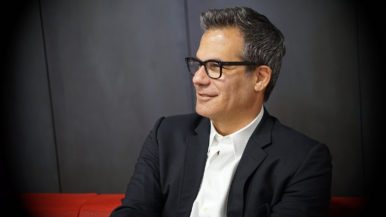Q&A: James Hinchcliffe, the Oakville racing champ who’s competing in this weekend’s Honda Indy

Last year, while doing practice laps at the Indy 500, Oakville’s James Hinchcliffe crashed into a wall and sustained near-fatal injuries. After months of rehab and training, he returned to the pro circuit for the 2016 season. On Sunday, he’ll compete at the Honda Indy, at Exhibition Place. We spoke with the self-professed “mayor of Hinchtown” about the road to recovery, classic car flicks and why putting on your socks can be something to cry about.
It has been a little over a year since the crash. For a long time, you didn’t have any memory of the accident. Is that still the case?
It is. I suffered a fairly massive concussion, so that’s not coming back any time soon. I think it was a blessing, not having any memory of the accident—or the extraction, which was the really unpleasant part. Not remembering helped me to want to get back into the car a lot sooner.
I’ve seen the accident on film hundreds of times. Watching it, I feel the same emotions as anyone else would, because I feel as disconnected from it as anyone else would. I look at it and I cringe, thinking, wow, that must have hurt. Having hit walls at 200 miles an hour before I know it probably didn’t tickle, but getting back into my car didn’t bring back any fears or memories because there are no memories to bring back.
So you never gave any thought to getting into a less life-threatening line of work?
No. The third question that I asked when I woke up, still attached to a ventilator and having to write things down, was, “When can I get back into a car?” The first was, “What happened?” The second was, “How is my family?”
From the moment I woke up, it was a countdown—a race to get back behind the wheel. I think racing drivers are just wired differently, or maybe it’s an athlete thing. I was clearly born without the self-preservation gene. I’m still as hungry and dedicated and motivated as I’ve ever been. After the accident, they said that I probably wouldn’t walk for two weeks, that I’d be in the hospital for a month and that I wouldn’t drive a car for six months. I walked on day 4, was in the hospital for ten days and I drove a car four months later.
What about the emotional recovery? That can’t have been easy.
What I have been through did change me personally. Seeing everyone else go through it—my family, my friends—that kind of helped bring it home to me. I remember the day when I could put my socks on by myself for the first time and I almost cried. I don’t take those things for granted anymore. I know it sounds weird, but in a lot of ways it’s the best thing that ever happened to me.
Does racing in your hometown feel different than racing in other places?
It’s definitely special to be here, and it’s different. So many drivers never get the chance to race in their home country, never mind essentially their home city. Being the only Canadian in the series right now, I feel so much support from all of Canada. It’s an honour to represent your own country at such a high level of competition. Coming here to the Indy race, that’s really what made me fall in love with the sport in the first place. My dad is from the U.K., so, unlike most Canadians, I didn’t grow up with hockey. In my family, it was racing. I went to my first Indy in Toronto at eighteen months.
You have declared yourself the Mayor of Hinchtown. What’s that about?
Hinchtown is a fictional city that some friends and I invented over a case of beer in the basement office of a startup company in Ludington, Michigan. I was at the point in my career where it was necessary to have a website. We looked at all of the other driver sites and we came to two conclusions: one, they were all the same and two, they all sucked. We wanted to do something totally different, and we came up with the concept of creating this imaginary town and proclaiming myself the mayor of it. At first nobody really understood. Now, I’m introduced as the Mayor of Hinchtown more often than I’m introduced by my actual name. My fans are the Citizens of Hinchtown—my loyal subjects.
Ending on a more serious note. True or false: Days of Thunder is the greatest racing movie of all time.
False! The best racing movie is Grand Prix. It’s the most realistic, and it’s loosely based on real characters. The movie highlights the less glamorous side of the sport, and they used real cars for all the racing sequences. No CGI back in the sixties!










